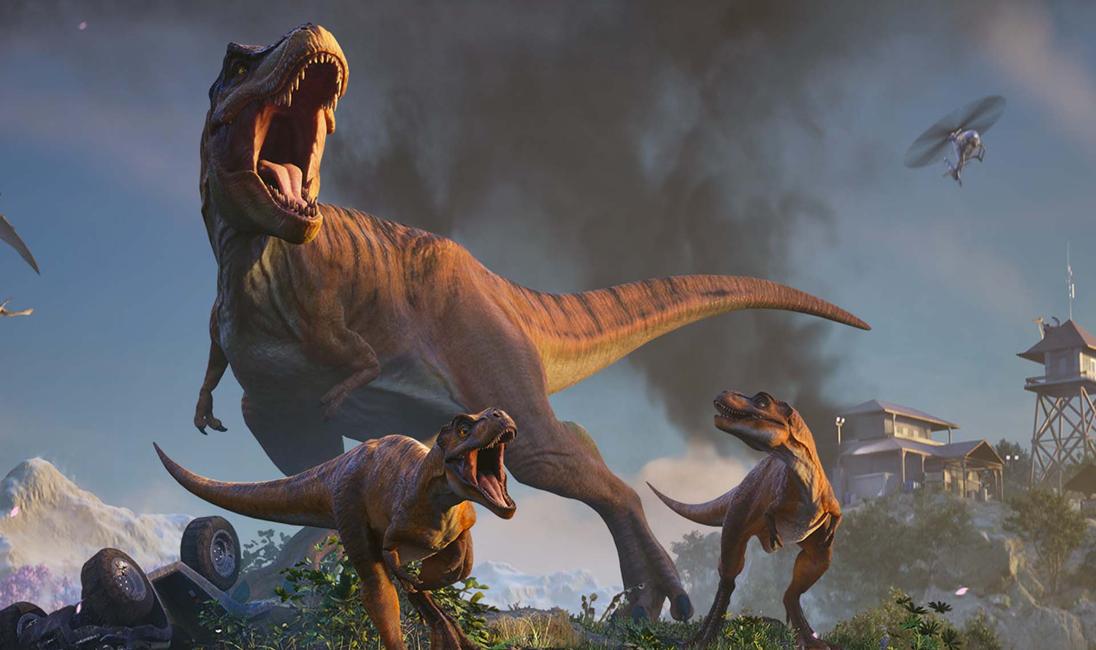Okay, Jurassic World Evolution 3 is looming, and I've got to admit, this latest rumor mill about improved T-Rex parenting has me strangely hooked. I mean, we're talking about the ultimate apex predator, right? But the idea that they're coding in more nuanced parental behavior? That’s next level. Wait, there's something even more interesting here... the potential implications for the game's overall dynamic. Think about it: how would this play into park management? What new chaos (and opportunities) could arise?
Dino-Nanny State: Is This Jurassic World Evolution 3's Boldest Move?
I've initially thought this was just a cute, quirky addition to the game. You know, something to make the dinosaurs feel a bit more…real. But after digging a little deeper, I'm starting to see the bigger picture. Imagine a scenario where your T-Rexes aren't just mindless eating machines, but actually have complex social structures and familial bonds. That could fundamentally change how we interact with them in the game.
But here's the thing. It's not just about making the dinosaurs “nicer.” It’s about adding layers of complexity. Maybe baby T-Rexes are more vulnerable to disease, requiring specific care. Or perhaps a mother T-Rex will become hyper-aggressive if her offspring are threatened. Suddenly, containment isn’t just about fences; it’s about understanding and managing dino-families. You might be wondering how this could realistically work within the game’s framework. Honestly, so am I! But the possibilities are intriguing. And with the advancements in AI, maybe is not so far fetched.
And this isn't just pulled from thin air. Game developers are constantly pushing boundaries, and for good reason. The bar is always rising.
From Carnage to Care: What Does Enhanced AI Mean for Gameplay?
So, what tangible changes could we expect? I’m thinking improved herd dynamics, more realistic hunting behaviors, and, of course, those parental instincts kicking in. Imagine watching a mother T-Rex protect her young from a pack of raptors. Or witnessing a juvenile T-Rex learning to hunt from its parent. These are the moments that could elevate Jurassic World Evolution 3 from a simple park builder to a truly immersive dinosaur ecosystem simulator. These type of changes, could change how players approach the game, leading to more strategic and calculated decisions. But would it work?
Actually, that's not quite right...It's not just about the spectacle. It's about the ripple effects. If dinosaurs have stronger bonds, it could impact their stress levels, their susceptibility to disease, and even their breeding patterns. Suddenly, the game isn't just about making money; it’s about creating a thriving, self-sustaining dinosaur population. And that, my friends, is a whole new level of challenge.
But, how would the game balance this increased complexity with the need for accessibility? That's the million-dollar question, isn't it? You don't want to scare away casual players with overly complicated mechanics, but you also want to provide enough depth to satisfy the hardcore dino-enthusiasts. I am really hoping that Frontier can pull that off.
Let me try to explain this more clearly... Think of it like this: the game could introduce a “dinosaur welfare” system, where players need to monitor the emotional and social needs of their dinosaurs, in addition to their basic physical needs. Ignore a grieving mother T-Rex, and she might become depressed and stop eating. Treat a juvenile T-Rex badly, and it might grow up to be aggressive and difficult to manage. These are the kind of nuances that could add real depth and consequence to the gameplay. Have you checked out this amazing game?
The Ethics of Dino-Parenting: Where Do We Draw the Line?
And here's where things get really interesting. If we're giving dinosaurs parental instincts, are we also opening the door to more ethical dilemmas? What if a mother T-Rex rejects her baby? Do we intervene? Do we let nature take its course? These are the kinds of questions that could spark some truly fascinating debates within the Jurassic World Evolution community.
Consider the potential scenarios: A player might decide to separate a mother and child to maximize profit, knowing it will cause distress. Another might dedicate resources to creating a “dino-orphanage,” providing specialized care for rejected or abandoned juveniles. Suddenly, the game becomes a reflection of our own ethical choices. And that, I believe, is a powerful thing.
I keep coming back to this point because it's crucial: Jurassic World Evolution 3 isn't just about building a dinosaur park. It's about creating a believable, breathing ecosystem. And that means acknowledging the complexities and nuances of dinosaur behavior, even if it makes things a little messier. Speaking of messy, anyone remember that time in the first game when a Spinosaurus decided it didn't like the fence and went on a rampage? Good times.
While X has these benefits, it's important to recognize… that it could also lead to new challenges. More complex AI means more potential for bugs and glitches. More nuanced dinosaur behavior means more variables to manage. But I, for one, am willing to take that risk. Because the potential reward – a truly immersive and engaging dinosaur experience – is well worth it.
FAQ: Dino-Parenting in Jurassic World Evolution 3
Will improved parenting AI make the game harder?
Not necessarily harder, but definitely different. The aim isn't to punish players but to create more dynamic and realistic challenges. Instead of simply reacting to outbreaks, you might need to proactively manage the social well-being of your dinosaurs. This means understanding their family structures, their emotional needs, and their individual personalities. It is all about the balance. So you can learn to manage your dinosaurs.
How will I know if my T-Rex is a good parent?
Great question! The game will likely provide visual cues and data points to help you assess parental behavior. Look for signs of affection, protection, and teaching. A good parent might spend more time near their offspring, share food, or actively defend them from predators. Conversely, a bad parent might ignore their young, exhibit aggressive behavior, or even abandon them altogether. The game may also incorporate a "dinosaur welfare" score that reflects the overall health and happiness of your animals, including their parental relationships.
Can I influence dinosaur parenting in Jurassic World Evolution 3?
That’s the million-dollar question! It’s likely that you’ll have some level of influence, but the extent is still unknown. Perhaps you can provide enriched environments that encourage positive social interactions, or implement specific training programs to help dinosaurs develop better parenting skills. Bluepoint studio new game is not the only studio trying to reach a point of improvement on the level of the game.
Will this mean less dinosaur rampages?
Potentially, yes! If dinosaurs are more emotionally stable and have stronger social bonds, they might be less prone to stress-induced rampages. However, that doesn't mean rampages will disappear entirely. A mother T-Rex protecting her young could still become incredibly dangerous if she perceives a threat. The key is that rampages will become more nuanced and contextual, driven by specific motivations rather than random aggression.





















